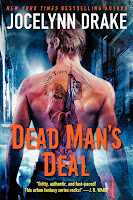I’m working on my first book where the story has gone off the rails.
Let me start from the beginning. I’m a plotter. Not a pantser. I’ll admit that when I started writing so
many, many years ago, I was a pantser, but I’d be willing to bet that most
people who dip a toe into writing as a child start as pantsers. Now, I’m not here to debate the merits of
plotters vs. pantsers. I think the world
is big enough to hold us all, and even those strange plotter-pantser hybrids
that no one really wants to talk about.
So, back in October, I got a wild hair and started
writing a story that featured Stefan from the Dark Days series. At this point, I’m already in strange, dark
territory, since I never planned to write Stefan’s personal story. If I wrote what would lovingly be termed a “spin-off
book” for the Dark Days series, I dreamed it would be Nicolai or Valerio. Hell, I even fantasized about Knox here and
there. Stefan was never in the picture. He was an uptight, pain in the butt, and no
one really ever imagined him as a hero.
Well, at least I didn’t.
But then Stefan met Erin and well… 50,000+ words later I’m
in a tangle.
After writing a couple chapters, I stop to create a rough
plot outline and make some key notes that would see me through a large chunk of
the book. This is normal for me. I need to know where my characters are going
before we get too far. It’s much easier
to sprinkle the text with hints and clues if you know where you’re going to end
up ... in the end.
I get back to writing and… something happened. Erin killed someone. Seriously, she wasn’t supposed to do that! I stood over the poor woman shouting that she
wasn’t supposed to do that because the dead man needed to be alive for another
several chapters to handle some things, but I don’t think she heard a word I
was saying because she was too surprised by the violent act. I handled the whole thing poorly and she didn’t
talk to me for a couple weeks, but we’re on better terms now.

So I’ve jumped back into the book with Erin and we’re
working things out. Our end goal is
still in sight – it just means that we’re going to have to take a different
road than we initially planned. And I
think the story is going to be better for it.
The end result is that the book is going to be something larger than I
initially planned. The story is moving
away from a simple love story about two opposites and their dangerous
world. It’s growing into an exploration
of self-discovery, learning what it takes to hold onto your sense of self
despite significant changes and pressures, and delving deeper into a world you
and I thought we both already knew.
I’m reminded of a piece of writing advice I received a
while ago from friend and killer author, Kim Harrison (genius behind the amazing Hollows series). Paraphrasing, she
advised me to change a previous decided event or decision in the course of
writing. If your character is to meet
someone at a bar, what would happen if that person didn’t show up? Instead of driving everywhere, hire a cab
that next time.
Authors make these grand plans, but we
sometimes forget that life gets in the way of these plans. It’s these times when life intrudes that we have
a change to make our books shine and help them become something larger than we
might have initially hoped.



